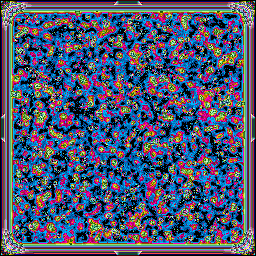
The stories and information posted here are artistic works of fiction and falsehood. Only a fool would take anything posted here as fact.

The stories and information posted here are artistic works of fiction and falsehood. Only a fool would take anything posted here as fact.
Previous: Day 01 | Next: Day 03
Remember: you’re here forever
###AUTO-ACQUIRED DATA FOLLOWS…archivist/day02-1.carchivist/day02-1.c
\#include "../array.h" \#include "../fileload.h" int main (int argc, char\*\*argv){ if(argc < 2){ printf("not enough inputs\n"); return -1; } char \* input = file\_contents(argv[1]); char\*dispos = strdup(input); array data = arr\_init(0, sizeof(int)); int n\_valid\_passwords = 0; char \* line = 0; while((line = strsep(&dispos, "\n")) != NULL){ if(strlen(line) == 0) break; int polchar\_occurences = 0; char \* val = line; printf("string: %s\n", val); int min = atoi(val); strsep(&val, "-"); int max = atoi(val); strsep(&val, " "); char polchar = val[0]; strsep(&val, " "); printf("%d, %d, %c\n", min, max, polchar); while(val[0] != &\#39;\0&\#39;){ printf("%c", val[0]); if (val[0] == polchar) polchar\_occurences++; val++; } printf("\nnumber of times %c occured: %d\n", polchar, polchar\_occurences); if(min <= polchar\_occurences && polchar\_occurences <= max) n\_valid\_passwords++; }; printf("Number of valid passwords:%d\n", n\_valid\_passwords); for (size\_t j = 0;j<data.size;j++){ printf("val: %d\n", arr\_get(int, data, j)); } return 0; }
archivist/day02-2.carchivist/day02-2.c
\#include "../array.h" \#include "../fileload.h" int main (int argc, char\*\*argv){ char\* input = file\_contents(argv[1]); int n\_valid\_passwords = 0; char\* line = NULL; int ind[2]; while((line = strsep(&input, "\n")) != NULL){ if(strlen(line) == 0) break; char\* val = line; ind[0] = atoi(val)-1; strsep(&val, "-"); ind[1] = atoi(val)-1; strsep(&val, " "); char polchar = val[0]; strsep(&val, " "); n\_valid\_passwords += ((val[ind[0]]==polchar) != (val[ind[1]]==polchar)); }; printf("Number of valid passwords:%d\n", n\_valid\_passwords); return 0; }
steveklabnik/steveklabnik-day02.rssteveklabnik/steveklabnik-day02.rs
macro\_rules! parse { ($input:ident, [$($split:literal),+], $($name:ident$(: $ty:ty)?),+) => { let mut iter = $input .split(|c| matches!(c, $($split)|+)) .filter(|s| !s.is\_empty()); $( let $name = iter.next().unwrap()$(.parse::<$ty>().unwrap())?; )+ }; } fn solve(input: &str) -> (u32, u32) { input.lines().fold((0, 0), |(a, b), s| { parse!(s, [&\#39; &\#39;, &\#39;-&\#39;, &\#39;:&\#39;], min: usize, max: usize, c: char, pass); let c = c as u8; ( a + u32::from((min..=max).contains(&pass.bytes().filter(|&b| b == c).count())), b + u32::from((pass.as\_bytes()[min - 1] == c) ^ (pass.as\_bytes()[max - 1] == c)) ) }) }